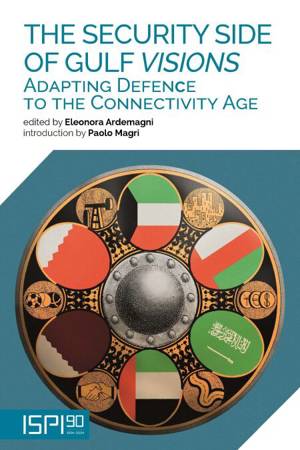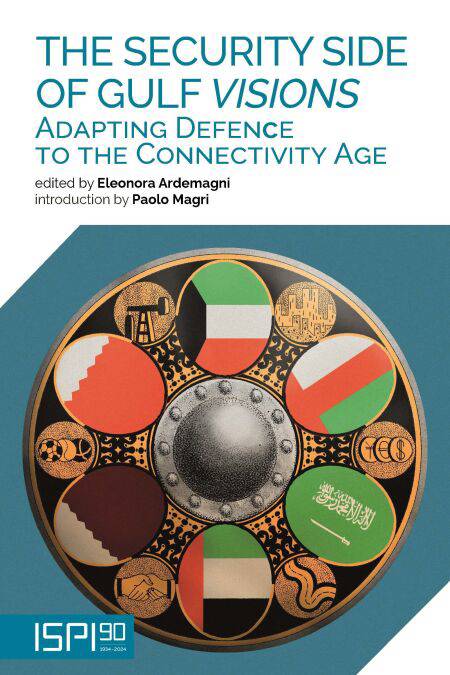
Door een staking bij bpost kan je online bestelling op dit moment iets langer onderweg zijn dan voorzien. Dringend iets nodig? Onze winkels ontvangen jou met open armen!
- Afhalen na 1 uur in een winkel met voorraad
- Gratis thuislevering in België vanaf € 30
- Ruim aanbod met 7 miljoen producten
Door een staking bij bpost kan je online bestelling op dit moment iets langer onderweg zijn dan voorzien. Dringend iets nodig? Onze winkels ontvangen jou met open armen!
- Afhalen na 1 uur in een winkel met voorraad
- Gratis thuislevering in België vanaf € 30
- Ruim aanbod met 7 miljoen producten
Zoeken
The Security Side of Gulf Visions E-BOOK
Adapting Defence to the Connectivity Age
Eleonora Ardemagni
E-book | Engels
€ 6,99
+ 6 punten
Omschrijving
The GCC states are adapting defence strategies to the challenges raised by their "Visions", their post-hydrocarbon national plans. Far from being just economic programmes, the Visions are broad national transformation platforms displaying also a security dimension, and with many security implications. New cities and industrial poles, infrastructures, mega events and tourism raise unprecedented security risks, at which the GCC states are answering through a combination of economic-oriented foreign policy, multipolar international alliances, and ambitions towards "defense autonomisation". What are the Visions' security dimensions and implications, and how does the post-oil path affect and reshape foreign policies?
This Report analyses how GCC states are adapting deterrence and defence tools to the connectivity age, navigating a troubled neighbourhood of both conventional and asymmetric threats. In a central but more vulnerable Gulf, how may the EU and NATO accommodate transformations in GCC states' defense policies, postures, and means, to support their own security?
This Report analyses how GCC states are adapting deterrence and defence tools to the connectivity age, navigating a troubled neighbourhood of both conventional and asymmetric threats. In a central but more vulnerable Gulf, how may the EU and NATO accommodate transformations in GCC states' defense policies, postures, and means, to support their own security?
Specificaties
Betrokkenen
- Auteur(s):
- Uitgeverij:
Inhoud
- Aantal bladzijden:
- 174
- Taal:
- Engels
Eigenschappen
- Productcode (EAN):
- 9791256001309
- Verschijningsdatum:
- 1/05/2024
- Uitvoering:
- E-book
- Beveiligd met:
- Digital watermarking
- Formaat:
- ePub

Alleen bij Standaard Boekhandel
+ 6 punten op je klantenkaart van Standaard Boekhandel
Beoordelingen
We publiceren alleen reviews die voldoen aan de voorwaarden voor reviews. Bekijk onze voorwaarden voor reviews.











